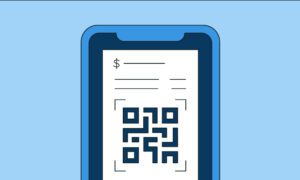From mobile banking to contactless phone payments to blockchain wallets, there is no shortage of money transfer solutions nowadays.
Growing investment in fintech innovation has fueled disruption not only in the way financial institutions work, but also in the way consumers behave. Non-cash payments have been growing by nearly 7% each year, with card payments accounting for 75% of transactions – an encouraging outlook for the connected, cashless society.
But even as long physical distances no longer take a toll on the speed or cost of money transfers, new challenges emerge. The diversity of local currencies, financial culture, and consumer preferences with regard to payment methods create gaps in spite of geographic proximity.
While SEPA aims to harmonize digital payments inside the EU, Europe on the whole experiences the effects of such fragmentations.
A money transfer from France to the UK, or from Germany to Poland can come at a heavy price for consumers – due in equal measure to currency conversion charges and to the varied cost structures of different payment methods.
Because if in the eurozone bank to bank transfers remain the preferred choice, local and regional solutions are quietly booming. iDEAL, the most popular method for online payments in the Netherlands, Alipay in China, ACH transfers in the US, MADA card system in Saudi Arabia, or card-to-card transfers in the CIS region are just a few examples.
Money transfer services come with limitations
Increased competition between financial service providers naturally brings lowers costs and more diversity for consumers.
But a fragmented market also poses challenges as there is no single service that can provide all and the same benefits to everyone and everywhere. As a result, consumers often find themselves bouncing back and forth between restrictions of either fees, location, currency availability, or transfer time.
And this applies not only to emerging or local services. Widespread payment solutions such as PayPal also have similar drawbacks – for example, preventing users in certain countries from linking accounts held in different currencies to their primary account, which would allow them to withdraw different currencies without a conversion fee.
Instead, people are locked into their primary currency (which can prove disadvatageous), despite holding multiple currency accounts – which is the case with expats, students abroad, or remote workers.
Connecting the dots with Fin.do
Fin.do was launched with a mission to empower people everywhere in the world and create equal access to fast, secure, and affordable money transfers irrespective of currency, bank account, or payment method.
Trusted by thousands of users worldwide for instant card-to-card money transfers in more than 50 countries and 180 currencies, Fin.do has a unique vision for the future.
In finance, consumer trust is hard-earned but easily lost. Localized payment systems reflect characteristics of a market and can become grounded in that culture. WeChat, Alipay have become a lifestyle for many users in their largest market, China.
Fin.do’s proposition is not to replace the already established methods such as card payments, digital wallets, or bank transfers; Fin.do’s goal is to act as an integrator of the payment methods that consumers are familiar with and that they – be it in the EU, LATAM, North America, CIS countries, or the Asia-Pacific.
Payment method preferences shouldn’t stand in the way of people connecting and interacting no matter where they are in the world. This is where Fin.do comes in.
As an interface for all digital transfers, Fin.do will enable more people to access the benefits it provides – such as accessibility, flexibility, and lower costs – while continuing to rely on their preferred payment solutions.
A seamless experience for every user
When digital or e-wallets are used for money transfers, people normally have to deposit money into the e-wallet, to make sure they have the required balance before making a transaction.
Topping up a digital bank or e-wallet account is not only time-consuming and cumbersome, it can also turn out expensive, and, at times, even risky.
Fin.do brings forward a different approach. Users only need to link their existing payment card or cards to the app, without having to transfer or deposit any money. Fin.do doesn’t hold user funds, nor does it rely on intermediary banks for money transfers. It provides a secure, seamless user experience with no balance top-up required.
As a result, transfers are irrevocable and completed in near real-time, providing users a reliable solution when they need it the most.
A truly global reach
Money transfer services offer a limited choice of currencies that can be added to the same account. This leaves the way open for double currency conversion, driving up the total cost of using the service.
Fin.do allows people in the Mastercard network to make transfers quickly and easily no matter which currencies they are using. Soon integrating Visa cards and other payment networks, Fin.do will become a global solution that enables people to access their local payment solution straight from the Fin.do app.
To help increase access to financial innovation, Fin.do users also have the possibility to make transfers either to a recipient’s phone number or to a 16-digit card number. So far, this has proved to increase accessibility to financial services for consumers both inside and outside the company’s network.

Fin.do’s next step? Bringing more people together
Fin.do’s technology has helped establish its service as a go-to solution for thousands of people globally.
Continuing on its mission, Fin.do is set to become a hub for transfers made in any currency, country, and with any payment solution. A hub that will empower even more people to connect, collaborate, and manage all their financial needs with ease and security in one place.














































